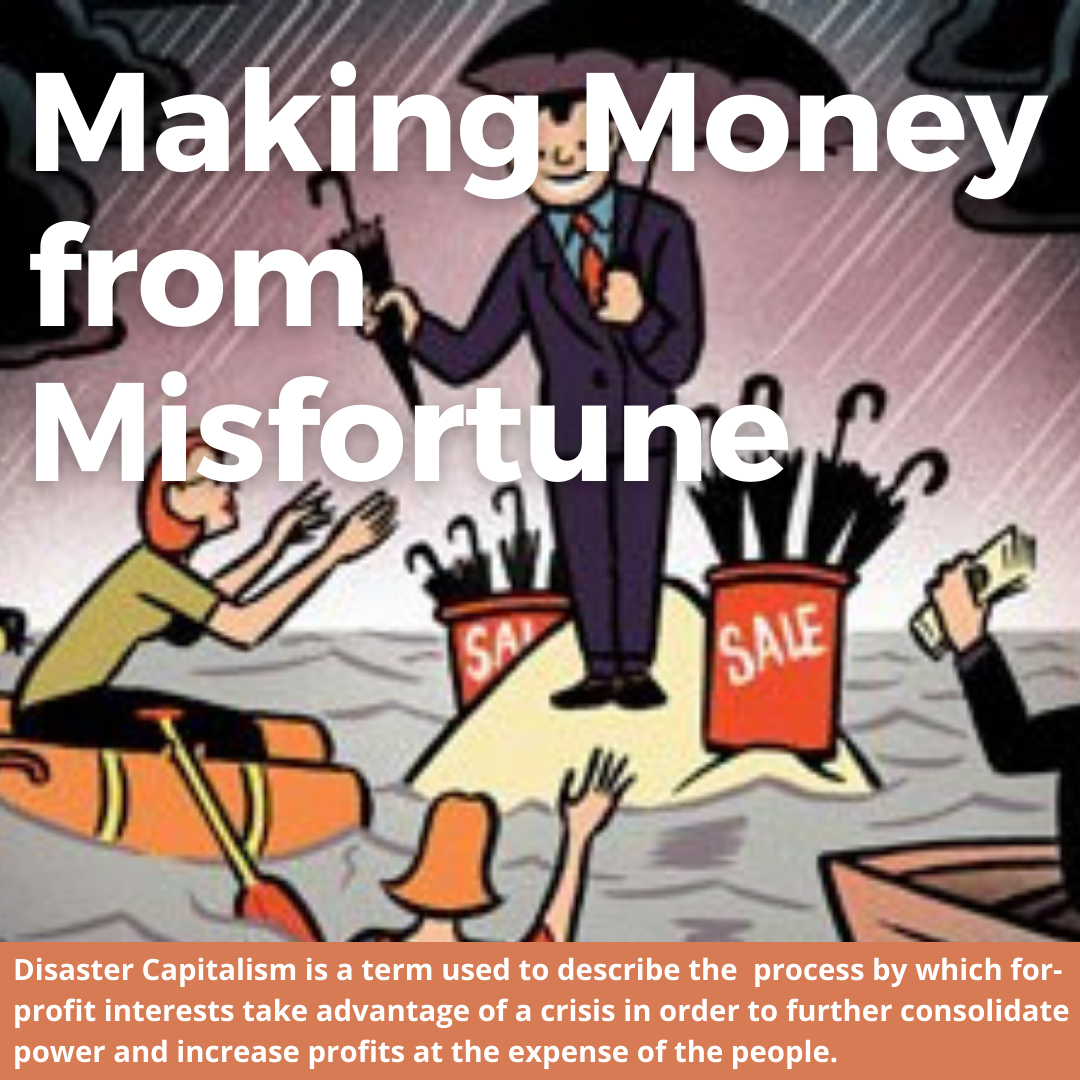May 28, 2021
By SAJE Staff
Disaster Capitalism is a term used to describe the process by which corporate interests take advantage of a crisis to increase their power and profits at the expense of people. Corporate entities achieve greater power and control by exploiting the fear and urgency of the moment in order to secure profitable government contracts without clear oversight; to scare property owners into selling their property for cheap, and to buy-up foreclosed/bank-owned properties for cheap. In short, they make money from the misery and misfortune of others. Each of these actions increases corporate power and ownership of housing and land in our communities.
Disaster capitalism is most often referenced after a natural disaster such as an earthquake, hurricane or fire. However, disaster capitalists can exploit any kind of crisis including the unemployment and economic crises we are experiencing today. Due to COVID-19, we’re in the largest unemployment crisis since the Great Depression.
The 2008 financial crash is one of the starkest examples of disaster capitalism. Nearly 14 million homes began the foreclosure process and approximately 9 million households ended up losing their homes to foreclosure. Black and Latino homeowners were 71-76% more likely to have lost their homes after the crash than white homeowners. Almost immediately, the private equity firm Blackstone started to buy up foreclosed properties and turn them into rental units, removing several homeownership opportunities from communities of color.
In Los Angeles, tenants who rent from Blackstone, the world’s largest private equity group, struggle to pay severely unaffordable rents, deal with faceless property management, and live in unhealthy and unsafe conditions. Moreover, rents paid by Los Angeles tenants flowed out of the community and into the investment portfolios of Wall Street.
Investors are eager and ready to profit off of the COVID-19 crisis. Corporate landlords are primed to flip properties to be sold as luxury condos for whiter and more affluent residents and make the gentrification and displacement crisis in Los Angeles much worse.
At SAJE, we’re responding with immediate advocacy efforts to keep residents housed, food secure, and healthy. While the public health crisis requires an emergency response, our community must be vigilant and begin organizing now and planning for the upcoming months and years. Elected officials must set up long-term policy plans to prevent forced evictions, foreclosures, the displacement of current residents and further dissolution of South Central communities. Read part 1 of our Just Recovery Series to learn more about policy advocacy and the ongoing organizing work against corporate landowners.

